Mali’s Festival au Désert | Manny Ansar: “We remain optimists, despite the circumstances” Interview
Interviews, New in Ceasefire - Posted on Wednesday, January 23, 2013 23:38 - 6 Comments
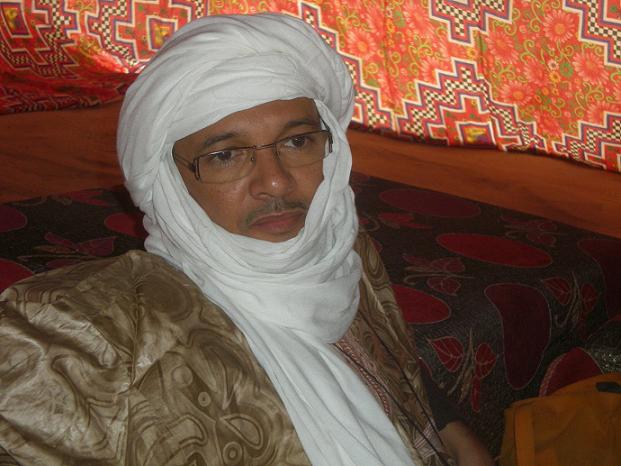
Manny Ansar, founder and director of Festival au Désert. Timbuktu 2012 (Photo: Oualid Khelifi)
Even as early signs of French military intervention in Mali loomed, the organisers of the landmark music festival, Festival au Désert, were still adamant they would go ahead with this year’s edition ’in-exile’, having being forced out from their stricken native land.
Founded in 2001 by a collective of North Malian Touareg musicians, the festival’s thirteenth edition this year was to seek refuge in the community’s nomadic roots as its home, in the south Saharan city of Timbuktu, has come under the control of various coalitions of Jihadists and armed rebel militias since early last year (2012).
Planning to travel thousands of Kilometres, Festival au Désert looked to tour in February/March 2013 across Mauritania, Burkina Faso, Niger and Algeria in two separate caravans of artists, activists and fans, whose routes would eventually cross in Southern Mali.
Instead, the 2013 Rendez-Vous in exile will take the festival’s banner of non-violence and cultural struggle elsewhere around the rest of the globe, but most unlikely not around the Sahel. Over the next twelve months, a network of international supporters in partnership with the original production team will be running “in exile” events and caravans across the Middle East, Asia, Europe and the US.
Until last week, organisers believed it was still possible to implement ‘the two Sahara caravans’ programme, despite the conflict and security concerns across neighbouring Sahel countries through which the artistic processions were meant to pass. But as armed groups attacked a gas base in South-East Algeria provoking a highly sensitive hostage crisis, and Jihadist fighters were reported at some stage last week to be getting closer to the Malian capital Bamako, hopes to see Festival au Désert ’in-exile’ accomplish its original Sahel itineraries are on the wane, and perhaps soon crushed altogether.
In the light of current events and in an increasingly volatile region, this year’s edition is very unlikely to cruise around the Sahel as initially conceived, but cultural activists and festival organisers behind Festival au Désert will undoubtedly rise in defiance once again. It is a story of peaceful resistance whose message isn’t about Touaregs, ‘blue people’, nomads and myths of geographically-remote places echoed by colonial narratives and wreathed in orientalist whims. As Manny Ansar, founder and director of Festival au Désert, told Ceasefire in the course of this interview, “Festival au Désert is unwaveringly standing in solidarity with Timbuktu and vowing to extend Northern Mali’s tradition of tolerance to world populations in similar distress”.
[Note: This interview was carried by Oualid Khelifi prior to the InAmenas hostage crisis in Algeria and right before the French air force campaign in Northern Mali had been launched. Manny Ansar also makes a reference to high level of alert and paranoia of Algerian intelligence and security forces.]
Ceasefire: Once more, Festival au Désert attempts to go beyond the divisions today in Mali. This year’s edition however will be nothing like the previous twelve. Back on the road again?
Manny Ansar: Indeed, it first started to honour the nomadic tradition of our ancestors. It moved from Tin Essako in 2001 to Tessalit in 2002, both in the north Eastern region of Kidal. Afterwards, we swung between different locations in the vicinity of Timbuktu. It was then mostly out of choice. But this time around, the festival’s survival dictates that we relocate far from home.
CF: This edition is taking place in a particularly tense environment marked by armed conflict in the north and political turbulence in the south. What is the festival’s message amidst all this?
MA: People have grown desperate and weary of talks of amicable solutions to the crisis one day, armed intervention and UN resolutions the day after, then back to prospects of peaceful negotiations a short while later. It is very confusing. Above these frustrations, we are gathering our artists and fans to sing peace and demonstrate that in Mali, not everybody is at war.
CF: In the current security configuration, organising such an event across five Sahel-Saharan countries must be a mammoth effort. Are all logistics and arrangements in place?
MA: It is the first time we do it, and sure, the challenge is immense. We are today few weeks away from the launch of the two caravans and we have to be constantly checking progress with the Niger team in capital Niamey, same applies for our colleagues working on different locations in Burkina Faso and Mauritania. We’ve been sleeping three to four hours a night, but we now more than ever believe it necessary to stand strongly for our values.
CF: Is there one organisational aspect or a section of the itinerary that you are finding particularly difficult?
MA: Wherever we are hosting events, permits have already been issued. We are liaising with both central and local governments, and it is going well. But for instance, in a place like south Algeria, we are keeping very low profile. As you can imagine, even a tiny concert there is closely and tightly watched by Algerian authorities, who require justifications and signoffs for each and every logistical move. Plus, anything related to Touaregs and Mali is perceived very sensitive. To be to be fully honest with you, we’ve even avoided considering any events there. Algeria is still part of the Eastern Sahara caravan, but that means only musicians will be travelling down from there with as little noise as possible.
CF: How about the repetitive security warnings issued throughout the entire Sahel region, is it affecting the internationalist characteristic of Festival au Désert?
MA: Yes, there are some foreign players who are not supportive of our “in exile” project this year. Recently, we’ve had some trouble planning the western caravan, especially in Mauritania and Burkina Faso. The French embassy has been contacting other diplomatic missions to put pressure on governments in the region so that we don’t get green light. Due to this, we’ve had to change the location from the Oursi desert in North-Eastern Burkina Faso to a less adequate site not far from the capital Ouagadougou. In relation to the bit of itinerary between Mali and Mauritania, the French embassy is telling us not to accept on the caravan their nationals since a French-Portuguese traveller was abducted last November in Western Mali, near the Mauritanian border. We are also being threatened to see our funding reduced or cut all together.
CF: As a result of these hurdles and warnings, are you then expecting a meagre attendance by Europeans and Westerners compared to previous years?
MA: So far, between people who bought tickets and those who enrolled and showed strong interest, the number is around 30 to 50, including visitors, journalists and volunteers. However, under all the pressure inflicted on us by regional and foreign governments, we’ve had to stop encouraging the persons who get in touch. Now, we’ve even reached the point to tell some Western friends and supporters of the festival that they can’t join us for the Mauritania-Mali segment as we had to promise certain embassies we won’t take them on-board. Most people will therefore accompany the caravan between Burkina and Bamako. From experience though, many people are likely to book and arrive last minute to avoid family and government pressures. As for people who are really keen, we’ve seen them in the past years coming out in our support with expert and trustworthy tourist agents.
CF: Historically, Festival au Désert has attracted many worldwide music icons such as Roberto Plant of the Led Zeppelin. Is the festival still receiving support from t from international artists in the west?
MA: As for financing, this year there has been very little. Nothing confirmed so far. The Irish star Bono has promised to help after his surprise visit and stage appearance in last year’s edition. He often sends sympathetic messages of moral support. Bono is more involved and committed to the global caravan. He is in charge of this initiative, along with big names in the American cinema and media. At this stage, they are studying the feasibility of the project in different countries across North America, Europe, Middle East, Asia and elsewhere in Africa. The first event in this world tour is expected in April. It is aimed at raising awareness of the conflict and helping to alleviate the suffering of refugees.
CF: Give us an idea of the places through which the global caravan will pass?
MA: The idea is to take Festival au Désert around deserts and dry lands at other continents. For the Middle East, we are thinking the Emirates. Here in Africa, Morocco and South Africa could be options. In Europe and the US for instance, we will be hosted by established word music festivals or at big venues in London and New York. In the latter, there will be an event in parallel to United Nations General Assembly annual meeting in September 2013.
CF: You mentioned the woes of refugees. Will the two Sahel caravans of artists attempt to recreate at the camps the musical and festive atmosphere for the several hundred thousand of North Malians away from their native land?
MA: There are some bands which will stop by to see them and hold small events. With some of our partners, we are sending trucks and means of transport to the camps so that refugees can travel down to the festival’s site in Burkina and spend three days with us. Refugees and displaced people will also join at different legs of the two Caravans: Niamey, Ouagadougou, Bamako and Ségou.
CF: Is there a plan to document this rather special edition through film as it was done three years ago in “Woodstock à Tombouctou” of Désirée von Trotha or as it’s being currently done in the “Sahel Calling” film project?
MA: There should be a Franco-German team of ARTE cruising with us and other international film crews. We have also a plan to document accounts of refugees at the several camps in Niger, Burkina and Mauritania. Most recently, some journalists and film-makers appear to be considering pulling out under warnings from their embassies or out of dreading consequences on their persons. Nonetheless, we will do our best to work with whoever can make it out of the professionals who showed interest. While conflict and war are being much documented and talked about, promotion of peace and tolerance also deserve all the attention.
Souvenirs from Festival au Désert 2012 edition. Timbuktu (Photos: Oualid Khelifi)
CF: There many reports on how music, and even mobile phone ringtones, has been banned in many places in Northern Mali due to extreme Islamist control. If you haven’t been threated already, don’t you fear for yourself as someone who is defying the word of fanatic violent groups?
MA: So far, there has been nothing issued for me directly as a person. We hear that these groups are very unhappy about what we are doing. One of the first things they did when they took over Timbuktu was to destroy our gear, power generators and even the big decorated gate which we used in the past to mark the festival’s entrance.
CF: What is the feeling amongst the community of organisers and musicians towards the two different conflict-resolution routes on the table these days: negotiations or armed intervention? Are you in favour of one method rather than the other?
MA: The most prevalent sentiment is that we’d all like to achieve a resolution without having to resort to shedding blood. But when we see the determination and the commitment of these fighters in the north against music and freedoms, we fear that the extremist groups have ears only for the drums of war and violence. As campaigners for peace and social cohesion through music and art, it is very difficult for us to rally behind armed solutions, but the situation on the ground suggests that, sadly, there isn’t much else of an alternative path.
CF: You are now based in Bamako, but some community leaders have stayed in Timbuktu and elsewhere in the North. There are reports suggesting they are being used by jihadists as intermediates to coerce local populations. How do you feel about their predicament?
MA: We’ve heard of many cases in which some visible members of northern communities were forced to sit in between these extremists groups and their fellow citizens. Some compare it to colonial practices, but what it is even more worrying is that some are being bribed to play this role while few others have converted ideologically and religiously to stand on the side of the jihadists. At the current stage, the phenomenon is still confined to a limited number of people, but as the conflict drags on, many more risk joining or working for Islamist groups in one way or another.
CF: It’s been reported that few big names of Malian music will ride on the two caravans. What degree of backing from local artists have you secured for this year’s edition?
MA: The community of Malian musicians is largely behind us, be it financial, logistical or moral support. The highlight is popular signer Oumou Sangaré, she does a lot for peace in Mali, in the South as much as in the North. As someone recognised by most people, we’ve decided therefore to avoid politically or commercially affiliated sponsors, and go for a musical and unifying symbol. It wasn’t hard to convince her, she has already been to the refugee camps, chatting and checking on women there, and even crying with them. Other West African musicians are also willing to help. For instance, Ivorian Reggae idol Tiken Jah Fakoly said he was available to join us and participate, but the problem is that even if they offer to perform for free, the added logistical costs for us are hefty, especially that many state and private funders are not assisting us anymore.
CF: How about the level of support from the larger population in Mali? Has the conflict provoked ethnic frictions which have stopped people from listening to Touareg and Songhai Northern music as they used to do?
MA: Despite the conflict and the ethnic incidents here and there, the general attitude towards music has not changed at all. People in Bamako and elsewhere in Southern Mali still like the Touareg band Tinariwen for example in the same fashion they did prior to the conflict. Even when I went to the refugee camps, I also witnessed Touaregs listening to artists from the south in the most natural manner. People feel that music is above all rifts, and this realisation is the force which drives us. Since the beginning of the conflict, I have heard nobody saying I won’t listen anymore to the afro-pop artist Salif Keïta because he is the musical star of the south or I’m throwing my Tinariwen records because they represent the north. None of this.
CF: So you remain optimist that, once the conflict in Mali is resolved, there will be no space for intra-ethnic hostilities and grudge?
MA: Yes, we are optimist in spite of the dire circumstances. Prior the festival’s first edition in 2001, some people didn’t even look at each other in the aftermath of the conflicts in the 1990s. But once we got going; men, women and children from different groups danced and partied together on the dunes. So, yes, we still have hope, and if we didn’t have any, we would not be running as much risk and trouble to continue our work and pursue our goals.
CF: Thank you for speaking to Ceasefire.
6 Comments
George glezmann
It’s important for the world to know that the efforts of pacifist humanitarians like Manny Ansar -pioneering visionaries have already reached a global audience through critically important supportive networks. The Caravan for Peace may be stifled due to the war and may not be able to be realised in the SAHEL Desert for now – I do believe that the FestivalauDesert will return to its natural home in Timbuktu as is its destiny. For now it’s important that the global music industry and humanitarians at large offer musicians and cultural workers from the region work throughout the 2013 year. The fundamentalists may have started out to stop the music what they have managed to successfully do is create demand for indigenous Desert music. We salute the bravery of the cultural workers and musicians and stand in solidarity with the FestivalauDesert now banned and in exile
Bono Involved Again with Festival au Desert - @U2blog - U2 news and discussion
[…] the area, the festival has essentially been cancelled. But Manny Ansar, the original founder, said in a recent interview that they’re instead planning “events and caravans across the Middle East, Asia, Europe […]
BONO COMPROMETIDO CON ‘EL FESTIVAL DEL DESIERTO’ | @U2Three
[…] moral”, afirmó el Director del ‘Festival del Desierto’, Manny Ansar, en una entrevista publicada el miércoles pasado. Pese a que este año no se celebrará el concierto en Malí, luego de que […]
Speaking truth to power — Contrary Blog
[…] Festival in the Desert, originally conceived as a nomadic travelling tour, also transformed its plans for 2013, working with international activists, musicians, and fans to create an “in exile” tour across five Sahel Saharan countries. Manny Anwar, director of the Festival in the Desert said in a recent interview, “it is the first time we do it, and sure, the challenge is immense. We’ve been sleeping three to four hours a night, but we now more than ever believe it necessary to stand strongly for our values.” He went on to say that the “Festival au Désert is unwaveringly standing in solidarity with Timbuktu and vowing to extend Northern Mali’s tradition of tolerance to world populations in similar distress”. Read more of the interview here: https://ceasefiremagazine.co.uk/malis-festival-desert-manny-ansar-interview/ […]
Speaking truth to power — Contrary Blog
[…] Festival in the Desert, originally conceived as a nomadic travelling tour, also transformed its plans for 2013, working with international activists, musicians, and fans to create an “in exile” tour across five Sahel Saharan countries. Manny Anwar, director of the Festival in the Desert said in a recent interview, “it is the first time we do it, and sure, the challenge is immense. We’ve been sleeping three to four hours a night, but we now more than ever believe it necessary to stand strongly for our values.” He went on to say that the “Festival au Désert is unwaveringly standing in solidarity with Timbuktu and vowing to extend Northern Mali’s tradition of tolerance to world populations in similar distress”. Read more of the interview here: https://ceasefiremagazine.co.uk/malis-festival-desert-manny-ansar-interview/ […]

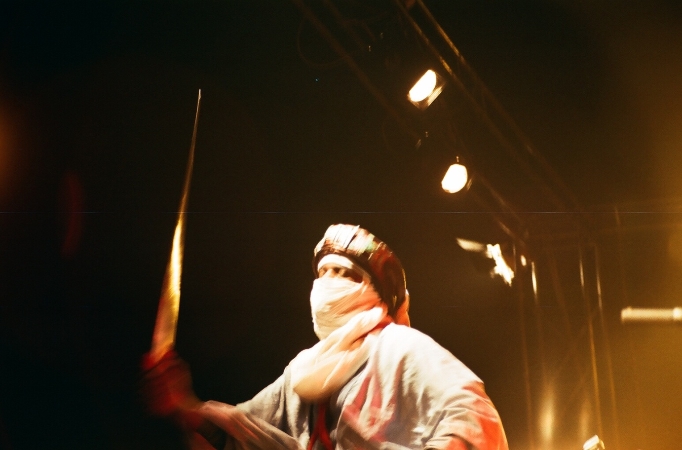
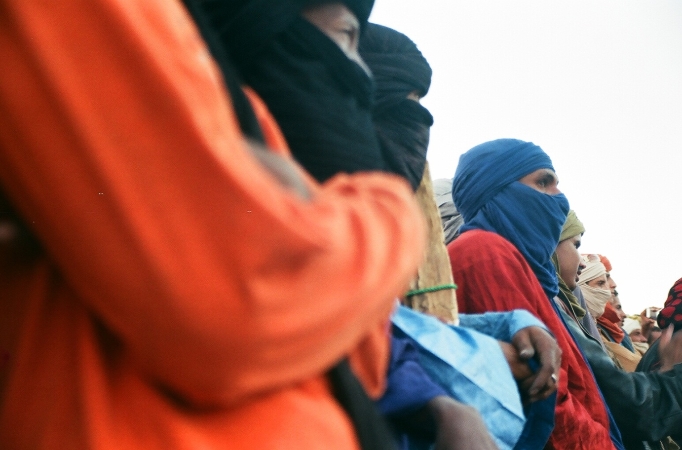
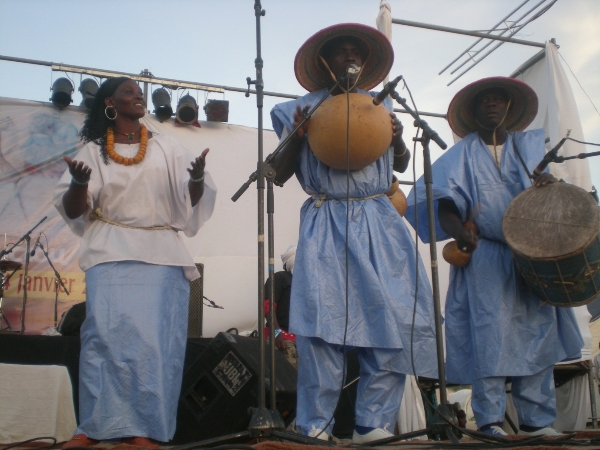
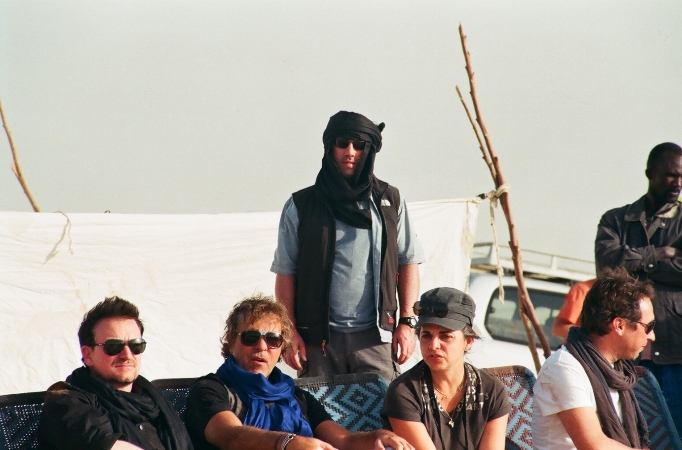
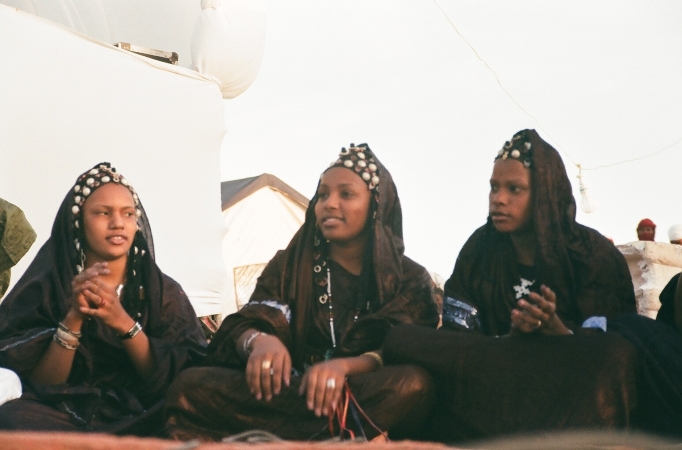
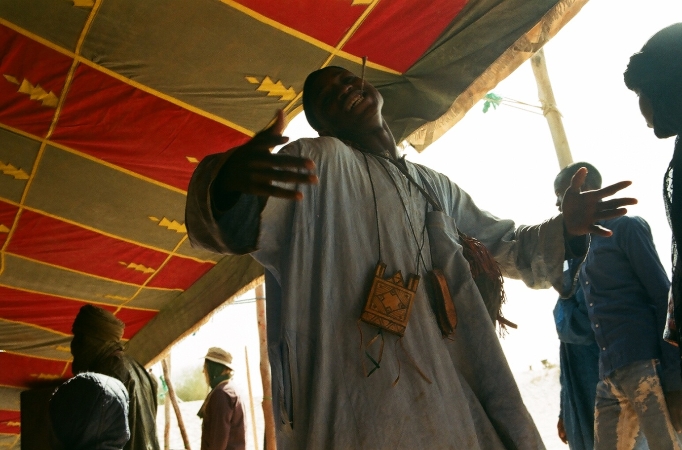
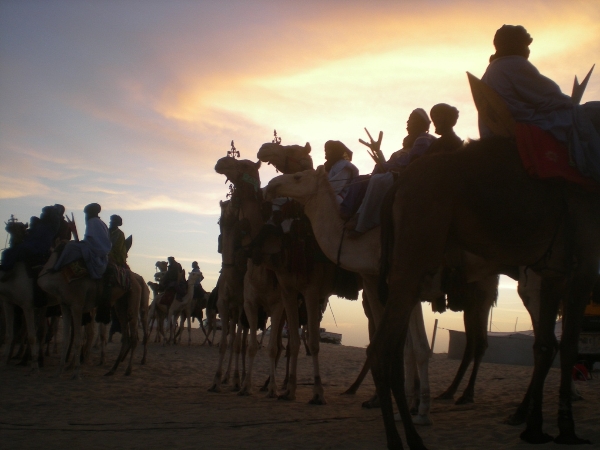
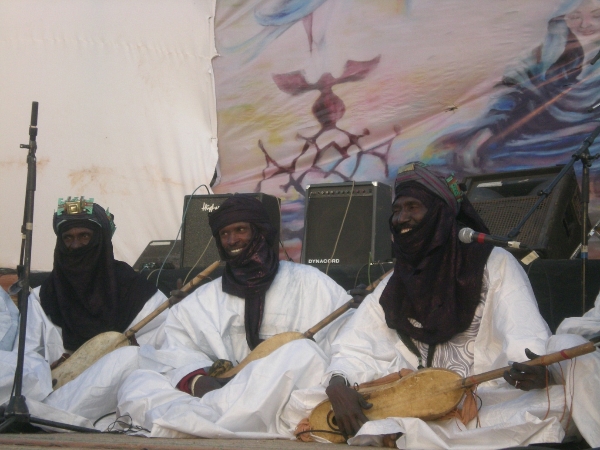
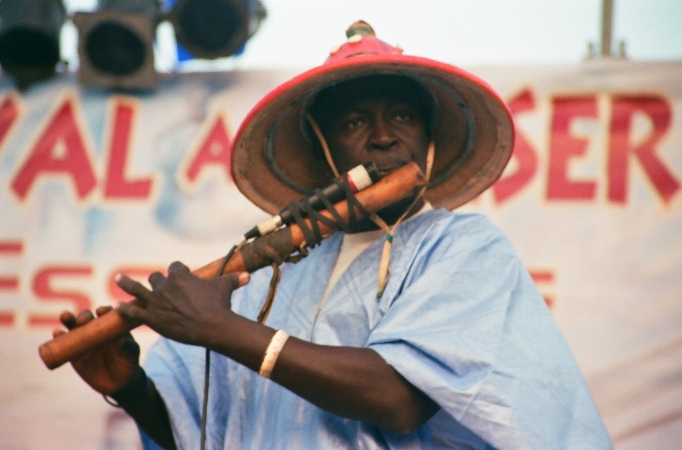
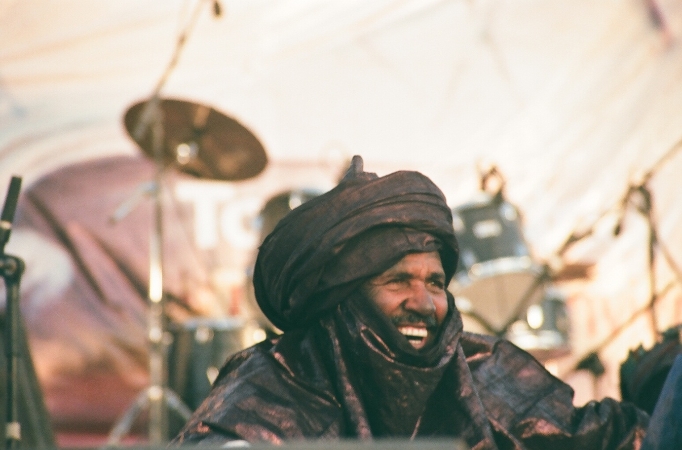
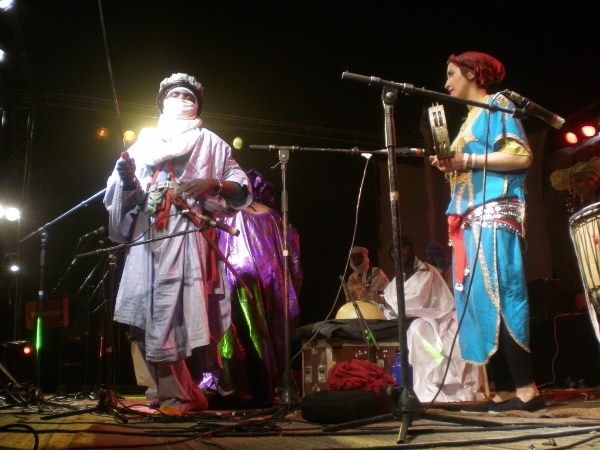
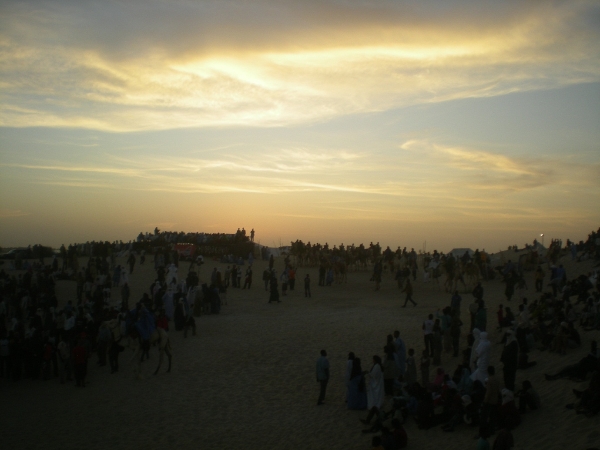

Thank you Qualid, very good report. Hope Mali, one day, will be able to shake off those damn religious fanatics, destroying the treasures of ancient cities, such as Timbuktu’s, and opressing people in the name of a goddamned god, and forcing to pay tribute to the same!.
Thank you!.